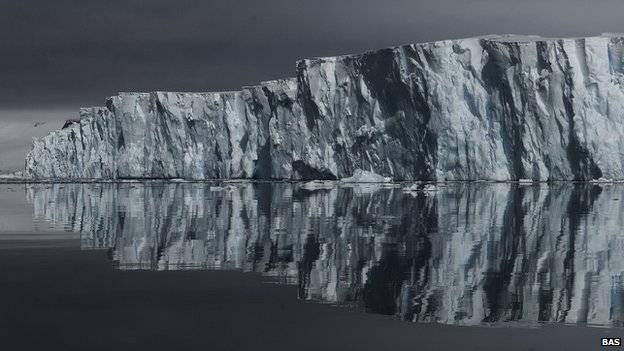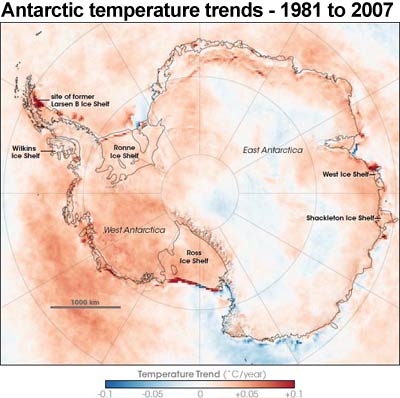ScienceRocks
Democrat all the way!
- Banned
- #1
East Antarctica is sliding sideways
East Antarctica is sliding sideways
East Antarctica is sliding sideways
It's official: East Antarctica is pushing West Antarctica around. Now that West Antarctica is losing weight--that is, billions of tons of ice per year--its softer mantle rock is being nudged westward by the harder mantle beneath East Antarctica.
The discovery comes from researchers led by The Ohio State University, who have recorded GPS measurements that show West Antarctic bedrock is being pushed sideways at rates up to about twelve millimeters--about half an inch--per year. This movement is important for understanding current ice loss on the continent, and predicting future ice loss.



